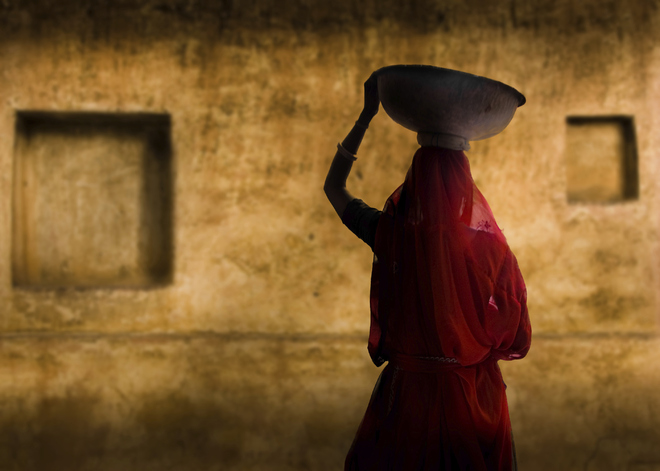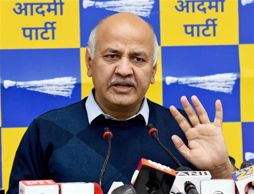
Ecological issues are really not the concern of the poor and hungry; getting the bare minimum nutrition and being fed is what millions would dream of
Shelley Walia
Neither the life of an individual nor the history of a society can be understood without understanding both.’ C.Wright Mills
The trouble with the ‘Left’ has always been its complete and utter opposition to capitalism, and that sentiment is reciprocal. The truth is always in the grey zone, somewhere in the middle, and very complex to ascertain. Wouldn’t it be ideal if socialism became a bit more efficient and less corrupt by being somewhat privatised and corporations became more unprejudiced in closing the income gap and less greedy to amass profit for its own sake, affording a kind of syncretism that would work for the majority. I suppose one can dream on and maybe arrive at a more relevant Left that could make the difference. Harsh Mander, in his book Looking Away, does not dwell on the revival of the Left but hopes that it can be reinvented someday.
We look up to our Central Government to uphold the rights and obligations of the needy, running food banks, helping the homeless and tackling debt and addiction. But what we see is the Government looking away, and caring more for the Tatas and the Adanis. The one per cent matters more. Child education and healthcare take the back seat.
The strong neo-liberalism that underpins the BJP government’s ideology has ignored the widening division between the haves and the have-nots. Inadequate food supply, higher rates of diet-related illness and malnutrition has led to acute food insecurity. Per-capita wealth declines every day whereas unemployment rises. The BJP manifesto for ‘achhe din’ has now got the complexion of a mere rhetoric, indicating lack of economic relief for the poor and the disabled.
One can only foresee that income inequality will widen as the second year of the Modi Government continues to ignore the dire needs of spending on clothing, childcare, keeping warm in winter, or paying for housing. Ecological issues are really not the concern of the poor and hungry; getting the bare minimum nutrition and being fed is what millions would dream of. Material assistance and support programs are the need of the hour, which the state must provide in times of escalating food costs and malnutrition.
As argued by Mander, we need to depend on each other to support the needy. And for this, we need more than food banks, an understanding of our resources and the equitable distribution across the deprived population of the country. The government must meet its obligations to deliver access to affordable food, medical care, health, jobs for the youth and education. The apathy of the middle class and the upper is abominable.
Dividing the book into three sections — Many Exiles of India’s Poor, The Legitimization of Prejudice and The Imperative for Public Compassion — Mander takes up the various pressing issues of inequality, diversity, homeless children and the indifference to child labour, food insecurity and the plight of the marginalised, finally arriving at the solution of learning from each other with ‘compassion’. The era, when communities lived cheek by jowl in peaceful co-existence, is unfortunately coming to an end. The brazen right-wing dispensation in Delhi brings to a closure the politics of multiculturalism and social transformation.
Moreover, the middle class is complicit in the admission of class and caste difference. Equally to be blamed is the younger generation, the yuppies that reside more in cyberspace of the corporate world, of crass consumerism, and remain oblivious of social problems of deprivation and homelessness. A sense of entitlement underscores their mental attitude. This indifference to the poor seems to underscore the Modi agenda that ruthlessly pushes neoliberalism at the cost of health, education and ecological balance. Drastic cuts in social spending mark a right-wing policy that favours economic growth going all out to even acquire land for industrial development much against the wishes of the poor farmers. Nothing would be allowed to stand in the way of market development.
As Mander argues in a recent interview, “It is not merely the facts of inequality and prejudice against minorities that worry me. But, the feeling among the very large and influential middle class that this inequality is not only inevitable but legitimate.” The middle class has internalised the notion that people of privilege are entitled to it and the people who are suffering from want and deprivation are destined to live the way they do. Their problems cannot be allowed to retard the onward march of economic progress. This is what Modi-ism stands for and this is what activists like Mander bring under scrutiny in the light of rampant intolerance and inequality that has become a vivid reality in our national consciousness.
Outrage and compassion join snugly to move many skeptics towards hope and aspirations for an economically liberal democracy. The barricade where Mander stands is the frontline of imagination and ethical concern for the other. The book reflects and reinforces this theory of public concern and justice.



























